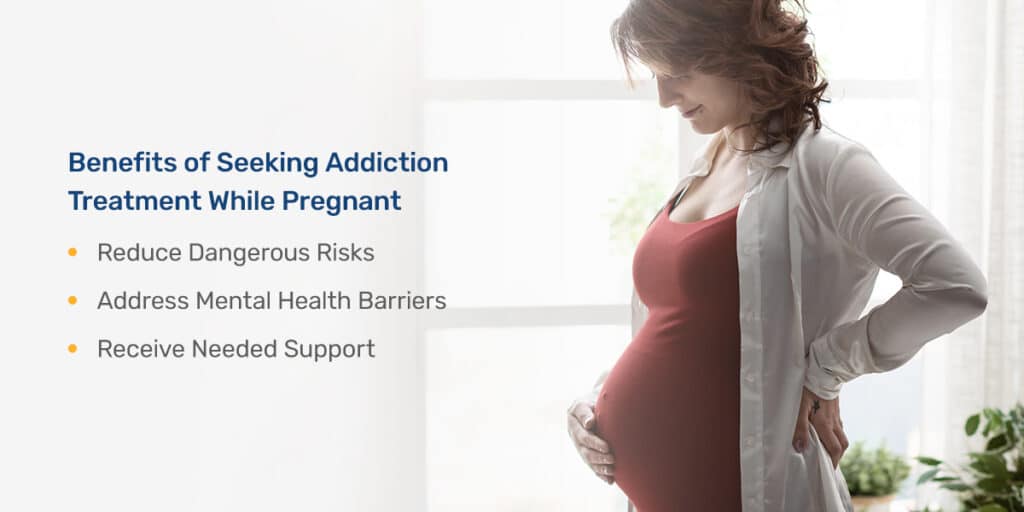
During pregnancy, a growing fetus requires proper nutrients to survive. However, pregnancy can come with risks, especially if the fetus is malnourished or receiving harmful chemicals.
Many mothers-to-be do not always realize that it is not just food being passed to their child — it is everything the mother consumes, from cigarette smoke to drugs. These dangerous chemicals can pass to the child through the umbilical cord and cause health complications.
If you are struggling with drug use while pregnant, consider seeking addiction treatment and begin building a better life for yourself and your future child.

Addiction is nothing to be ashamed of, and you are not alone. By deciding to seek recovery, you can benefit from the following factors.
Consuming illicit drugs or misusing prescription medications during pregnancy can double or triple the risk of stillbirth. While other substances may not be fatal, they can cause long-term effects and damage to the fetus, including low birth weight, congenital disabilities, small head circumference, post-birth withdrawal or sudden infant death syndrome (SIDS).
Going to rehab during your pregnancy can help reduce these risks significantly, encourage healing and prevent withdrawal symptoms after the baby is born. The earlier you seek help in your pregnancy, the better the outcome for your child.
Motherhood can come with several stressors and feelings of hopelessness, especially for single mothers. These feelings can then influence the use of drugs as a coping mechanism.
Recovery programs can help you work through these barriers and fears of motherhood. In a therapeutic environment, you can learn skills and gain confidence in yourself as a future parent. You can also address the root problem behind your addiction and find healthier outlets to express your feelings and concerns.
Many mothers-to-be going through drug addiction often feel alone. An addiction treatment program can provide the support system you need for accountability and success. A solid support system will encourage you to meet your recovery goals and prevent the risk of relapse. We accept pregnant women up to 30 weeks gestation and prenatal care is provided.
It can be challenging to set aside fear and reach out for help. At Hope For Tomorrow, we will welcome you with open arms. Each program we offer will be personalized to fit your needs and encourage a successful recovery.
Hope For Tomorrow offers residential drug rehab programs to provide you with consistent care and support. We understand each individual experiences recovery differently, which is why we tune our full-service resources to meet your needs.
Our inpatient drug rehab program includes 24/7 medical care, individual therapy and group therapy — all of which provide a supportive and healthy growing environment. You will also have a private room and receive quality meal services from our full kitchen.
Your total stay with us can vary based on your individual treatment plan and level of care. Hope For Tomorrow strives to encourage your recovery journey, even offering a continuing care program following the completion of our inpatient program.
At Hope For Tomorrow, we recognize you may have other responsibilities in your life, and we wish to accommodate those as best as possible while still providing quality care. Our part-time outpatient rehab program allows individuals to meet with a therapist several times a week while still maintaining a job or other necessary involvements.
Our outpatient program is convenient and flexible, allowing patients to get real-world experience while still seeking treatment. While you will not be on campus around the clock, our outpatient program allows access to all our rehabilitation services so you can get the medical and psychological treatment you deserve.
The treatment team at Hope For Tomorrow is compassionate, understanding and present to encourage you every step of the way. You and your future child are our top priority, and we will do our best to ensure you are comfortable.
If you live in West Virginia, reach out to our main location in Point Pleasant or our affiliated outpatient clinics in Martinsburg and Charleston. We look forward to helping in any way we can.